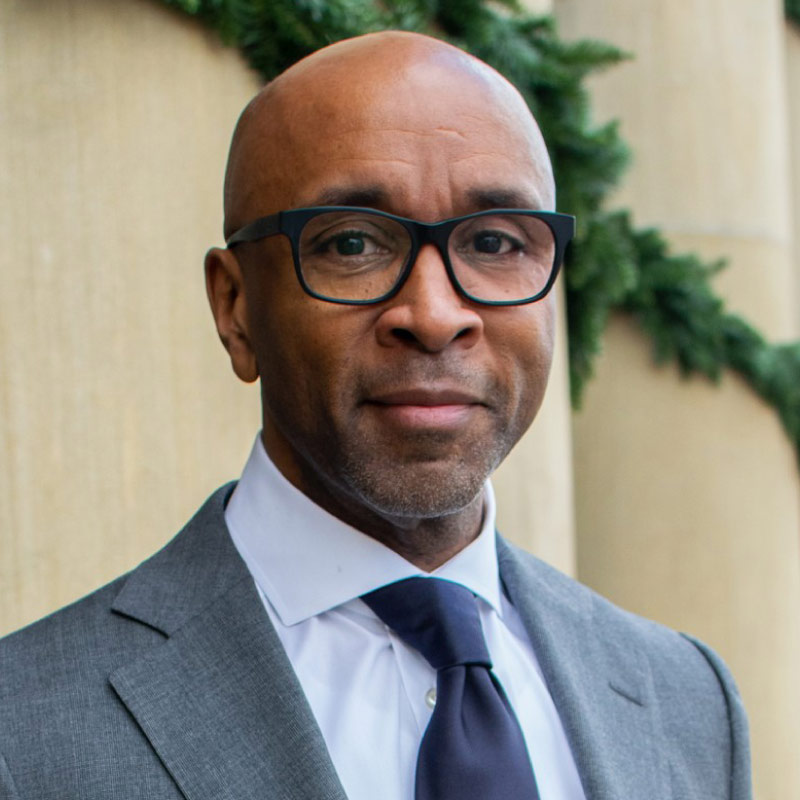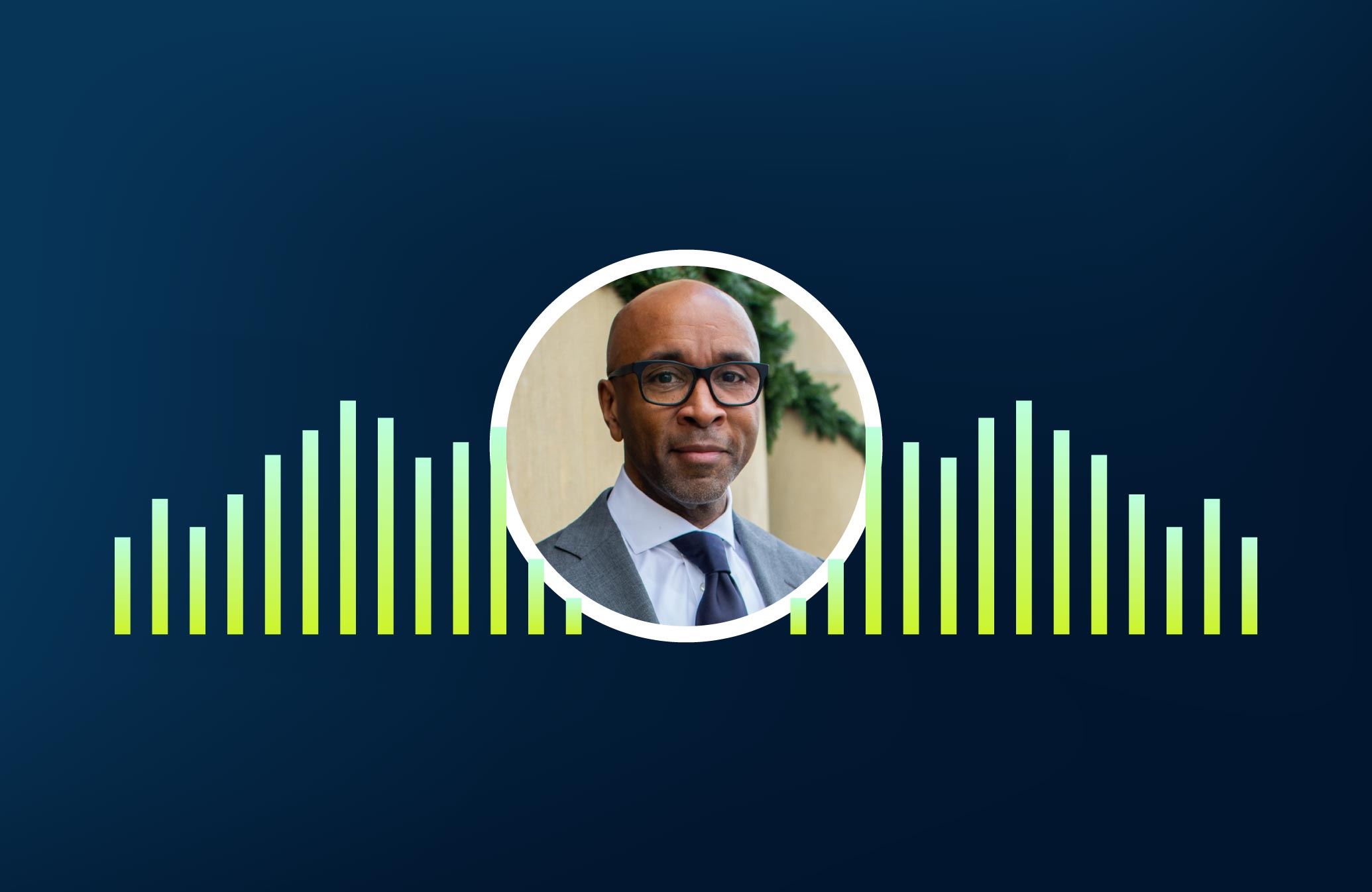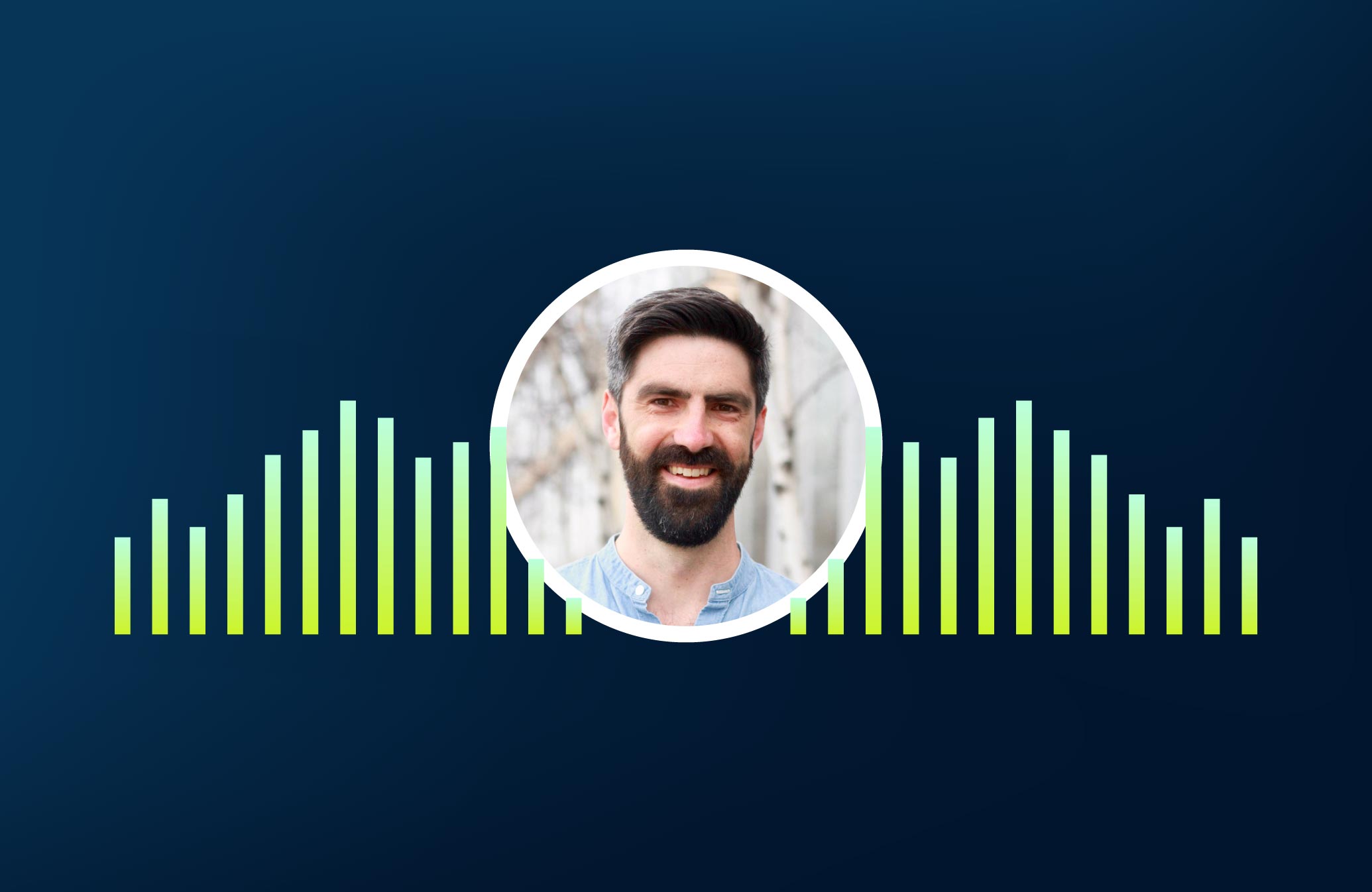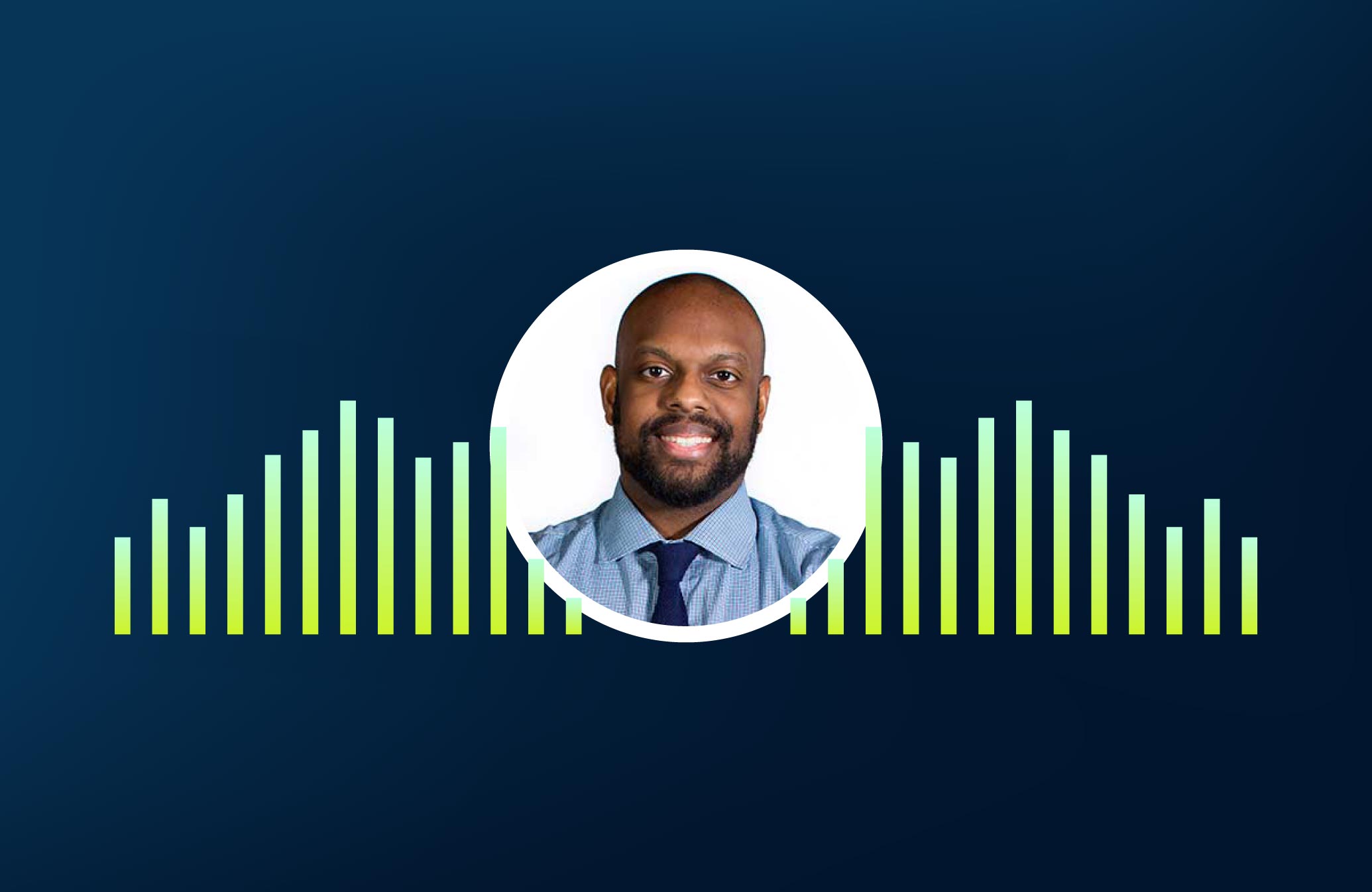Listen Now
Episode Transcript
Announcer [00:00:00] Welcome to RadioRev, podcasting from the heart of healthcare in Minneapolis, Minnesota. This is the podcast for change makers looking to do more than just health engagement. It’s about getting people to take action and do things that actually improve their health. It’s a radical idea, right? So we’re talking with the leaders, innovators, movers, and shakers who are bringing new ideas, inspiring others, and leading the way.
Jenn [00:00:26] Welcome to the premiere episode of RadioRev, season two. I’m your host, Jenn Dellwo. Thank you for joining us for season two. This series of episodes dives deep into Social Determinants of Health, offering various viewpoints on the topic with a different industry expert each week with the hope that you take away new ideas, perspectives, and are inspired to look at SDoH in a new light from all angles. As a collective, the goal of these conversations is to inspire innovation and motivate the healthcare industry to work together to create meaningful solutions that help people live stronger, healthier lives. Today, I’m excited to introduce our first guest of this series. We’re joined by Pierre Vigilance, a population health expert currently working on several different projects, including being a founding member of HealthUp. Pierre, welcome to RadioRev. Thanks so much for being here.
Pierre [00:01:12] Thank you very much for having me.
Jenn [00:01:13] I’m so grateful you’re here today and can’t wait to dive in. But first, some housekeeping. What’s your favorite ’80s song?
Pierre [00:01:21] So this is tough because I’m a bit of a music person. I like to think of myself as one. So if I had to pick just one, I was going to put it back on you and say one from each genre or just one overall?
Jenn [00:01:37] You have to pick one.
Pierre [00:01:38] Yeah, my big one would have to be Anita Baker’s “Sweet Love.” I think it came out in the early/mid-’80s and it reminds me of a whole bunch of different things, including being in Brooklyn, New York, with my cousins. I was visiting from the UK, and that song was played all summer long on cassette, and they just had heavy rotation. It’s a great song in its own right, but it just reminded me of a particular time in a summer in New York that I won’t forget. {music plays}
Jenn [00:02:33] I love that. I love when there’s a story attached to the song. It’s my favorite part.
Pierre [00:02:36] Yeah, I know it definitely brings back a lot of memories, and I think we played it at the wedding, too.
Jenn [00:02:45] Great. Why don’t you tell us a little bit about yourself, some of your background and your journey in the healthcare industry.
Pierre [00:02:52] So it’s sort of interesting, as I’ve thought about this before, and it goes back kind of to that Brooklyn situation. My background is—family wise—my parents are from the West Indies. My mother’s Trinidadian. My father’s Guyanese. They met in London. And that’s where I was born. I have a younger sister who’s an attorney. And we were born in the UK. Growing up there until my sort of early/mid-teens, I got exposed to a national health system and socialized medicine through my father, who was an optometrist, and my mother, who was actually working in the social support space as a social worker, helping seniors. And so I had exposure to the social determinants conversation around food and access to care and all that kind of stuff in a different context. And then I came to the U.S. frequently to visit family and got exposed to a whole bunch of different things. Brooklyn in the 1980s was very different than Brooklyn today, and there were a number of very obvious determinants of health and illness that were sort of right there in our face in the community. And seeing those things certainly informed my process of thinking about health from a broader perspective than just the clinical. I went to college and did a traditional pre-med background in biology with an English literature minor because I still appreciate language and literature, and then went to med school and public health school up in Baltimore at Hopkins and then did an emergency medicine residency only to get the full realization that the clinical stuff is great. And I think that it’s an important piece of our health structure of things, but many patients were coming into the emergency department with non-emergencies. And so my thinking around how to impact those patients and their lives led me to more of a public health-oriented trajectory from then on. And so I ran a substance abuse/coordinated case management outfit for a couple years with a community development corporation in Baltimore City. And then I was in a number of different positions in Baltimore City, Baltimore County, and then Washington, D.C. I was a health official in those places before being in academia for the last nine years. And I’m consulting for the last year, really. But that’s sort of how I’ve gotten to this point.
Jenn [00:05:43] And you’re also a fellow podcaster. I wanted to make sure to bring that up. Can you tell us a little bit about your podcast?
Pierre [00:05:49] Yeah. Thanks. It’s a relatively new outing for me. It’s almost a year old. The show is called Junctional Thinking. But Junctional Thinking is a set of skills, behaviors, and ideals that I have either come to realize or had to learn over the years are the things that make us effective at complex problem solving. And so there are five junctional thinking elements, perpetual learning, effective listening, not being afraid of leadership, the practice of patience, and being about partnership development. And I try to have conversations with people from multiple different sectors to talk about where and how their work intersects with health, because as you know, as we’re going to discuss here, health is not really just a healthcare game. It is one that needs the inputs of multiple sectors, and I want to try to help people connect and inspire people to problem solve a little bit differently.
Jenn [00:06:52] Yeah. It’s a great podcast. And in addition to that work you’re doing, you, as I mentioned at the beginning, you have a lot of different balls in the air right now. Can you tell us a little bit about some of the work that you’re doing and what some of the goals of the initiatives you’re working on are?
Pierre [00:07:07] So I think everything is very much tied together by this junctional thinking, this transdisciplinary way of thinking about and doing things which I think I’ve been inspired to do because many of the learners, be that graduate students in public health school, or executive learners, or others who I interact with, have indicated that in their exposure to traditional health education, they don’t get exposed to some of the other spaces and places and languages that people speak in those places, in places that are related to health. And so I’ve recently been immersed with one client in the impact investing space. They primarily look to try to create financial capability to either retain or create affordable housing. But because impact is at the tip of their spear as one of their main missions, they try to weave impact into all of those projects. And so the thinking about workforce development, education, aging in place, the intersections between that and affordable housing are very near and dear to that company’s heart. And helping them try to reimagine some of those partnerships, as well as do some operational management work with them, has been hugely beneficial to me because I get to learn a different language, the language of housing and community development and that sort of stuff, which I’m loosely aware of from a social determinants perspective, but I am now having to become much more clued into because of the work that they’re doing and how they’re engaging me around that. So that’s a really exciting space and one that I think is still fairly early in its genesis, although a lot of people in the affordable housing space and a lot of people are in impact, but being in both at the same time and then weaving the population health stuff into it is really exciting.
Jenn [00:09:15] Transitioning to the bulk of what our conversation is going to be about today, which is Social Determinants of Health, it’s a huge topic that’s on everyone’s mind. And the purpose of this episode in particular is to lay the groundwork for the rest of the season. So Social Determinants of Health is nothing new. We’ve been talking about it for years. But why is it so important right now?
Pierre [00:09:38] I think from a couple different perspectives, it is super important. I mean, one, the healthcare bill continues to burn a hole in our pockets. I mean, the cost of care hasn’t gone anywhere, at least in a good direction in this country. It’s 18% of the GDP or something, in comparison to the EU, where it’s maybe closer to 10%. And part of that is driven by the fact that even though we know that healthcare itself is not a primary determinate of health, we pay for it like it is. So healthcare itself costs a lot of money, and some would say that there is some gouging with respect to that. So with those price points being high and a continually aging and growing population, and an increasing Medicare and Medicaid population, we are in this continued cycle of trying to address costs and provide better outcomes. But we can’t do that by just digging away at the healthcare end of it, which is why the social determinants upstream approaches are so important. It’s why I named the company HealthUp, because we are trying to be about the upstream elements of things where health is up there, not down here.
Jenn [00:10:56] Is there a specific way that we should be talking about Social Determinants of Health?
Pierre [00:11:03] I think that it’s not just a way, but it’s also a ‘who,’ not just a ‘how’ but a ‘to whom.’ So the audiences that we talk with about social determinants in public health—and I don’t know if this has been your experience—but I have found that public health people, and I love us to death, but we are great at talking to ourselves. And I don’t mean just by ourselves. We speak to each other about the same challenges on a regular basis. And we don’t necessarily, as far as I see it, get as aggressive as we need to be about speaking to people outside of the public health space. So to understand their perspective, where the pain points are for them as they take care of or deal with the same communities and customers that we’re trying to deal with. And so that’s the ‘who’ with respect to what could we or should we be doing differently. The ‘how’ I think is really, and this may sound surprising to some people, but it’s better listening. It’s actually not talking at all. It’s just trying to understand people’s experiences and the language that they use, be that a community member or a financier, for example, and understanding that by listening to them. So that’s sort of a ‘how.’ I think that the last thing that we could be doing differently is understanding that the data is great, but the stories behind the data are greater. And getting to those stories is what really has us understand how we’re going to impact health outcomes by helping people’s lives change and having the circumstances that create those lives change. So I think it’s a combination of audience and our own sort of decisions to just shut up and listen.
Jenn [00:13:09] Yeah, absolutely. And this is spurring a thought in my mind that’s kind of three parts. So the first part is how can we all, and not just the healthcare industry, but humanity as a whole, how can we all get on the same page to talk about Social Determinants of Health in the same way? And the second part of that would be, do you think that it is possible for all of us to come together and achieve that? And then what would the impact of being successful in that way mean?
Pierre [00:13:39] So I think that one way to do this could be, and this is not easy, I’m not suggesting that this is a simple thing, but a lot of times, particularly in municipal scenarios, people are driven by funding streams. And actually in academia, too. In a lot of spaces, you apply for the grants or for the funding that speaks to your sector. And you only apply for the grants that speak to your sector. And so there’s a particular set of questions being posed in those RFPs that make it such that a housing agency will go after this RFP, or a health agency will go after this other RFP, and a workforce development group will go after a third RFP, but they will be serving the same clients. And the impact of workforce on housing and on income and then on housing and then on health are inextricable, but we are forced to write and respond to different applications for funding. Now, there has been some attempt to bring those worlds together, and some applications are seeking to be a bit more cross-cutting. And that’s a start. But then when it comes back to the government level of things, there’s a health budget, there’s an education budget, there’s an economic development budget, and they’re all separate. And I think that they probably need to be in many instances. But are there opportunities to bring some of those budget lines into alignment with each other and create some shared accountability so that everybody is doing things that can help everybody else’s bottom line at the same time as your own? So I think that’s one way to potentially do it. And I think the other thing is, honestly, everybody else gets into healthcare. I mean, people who are in the health space who didn’t go to school to learn anything about health. They learned about problem-solving. They learned about partnership development. They learned about particular verticals like finance or evaluation or something like that. But there is curiosity because there’s opportunity from outside entities to come into the health space. We need to mirror that curiosity and see the opportunity in stepping out of the health space to get into the other spaces. And I think that’s another way that we can change how population health and how public health and how social determinants get addressed.
Jenn [00:16:29] So going back to the previous question, we touched on the ‘how to talk about social determinants,’ but should there be a universally accepted way we talk about SDoH? Does that already exist or is there still some work that we need to do there?
Pierre [00:16:46] Yes, that’s a good question. And I think that it’s tricky because obviously we public health folks and people who are oriented in that way like to have definitions for things and say, “Well, if you don’t have it defined, how can you all be working on the same page?” And there’s some truth to that. But I think that the range of things that are the Social Determinants of Health creates a very big dictionary opportunity. There’s a lot of different languages that would go into a Social Determinants of Health dictionary or encyclopedia. So maybe it’s not about necessarily trying to find the language for SDoH, because here’s the thing, I’ve listened to people talk about other things like Daniel Dawes, who I commented on a couple of times, has a book that’s just come out called “The Political Determinants of Health.” And then I’ve got colleagues at another institution talking about the commercial determinants of health. And they are all slightly different things. But we can ‘X’ determinants of health our way into oblivion without actually doing anything. So I’m not sure whether or not we need to struggle through finding the common language, or if we need to do the work of exposing ourselves to and engaging in partnerships in a way that allows us to try something, fail quickly, fail cheaply, and then try something new and do all that in collaboration with the people who are most impacted, the communities that we serve. So I don’t know that I would be too fixated on the definitions, but I am sure, and my flame-retardant suit is on, I’m sure people will have some issues with that. And it’ll be interesting to see over the course of this season how others respond to that.
Jenn [00:18:41] Right. Because I, like you, have been having conversations and have heard many people saying that they don’t think that ‘Social Determinants of Health’ is the best, and I’m saying this in air quotes, “umbrella phrase” for what we’re really talking about. So the question then becomes, is this just semantics? Are we thinking too hard and focusing on the wrong thing? Maybe we shouldn’t be wrapped up so much in the words, and we should really stay focused on what the problem is, rather, and focus on solving that problem rather than establishing these definitions. Or, on the flip side, is it critical to have the right definitions in place in order to solution for the problem?
Pierre [00:19:20] Well, I think the problem with that last thing, having the definitions, is if I did find something in a particular way and refused to see it in any other way, from any other perspective or vantage point, then I could get in trouble. And so here’s a perfect example. The word ‘equity.’ Now, first of all, that word gets conflated with equality all the time, and they’re not the same thing. But then if you talk to a person who is in public health about equity, they’re thinking health equity, giving people what they need to overcome the challenges that they’re facing. Not the same thing for everybody, but some variant on a theme so that people can see over the proverbial fence. You talk to a financier about equity. They may be thinking about equity with respect to who gets access to loans, etc., but equity in the finance world means something completely different. And to your point, defining the terms fastidiously and saying, “Well, this is exactly what we mean.” Well, for whom is that the case? Is it for public health practitioners? Is that for healthcare administrators? Is that for community development experts? Who are we defining it for? And yes, as you said, does it matter if, at the end of the day, we’re still talking about housing, economic development, et cetera? If we’re talking about those same things, then call it ‘blue determinants of health.’ I don’t really know that it matters. Let’s just get it done.
Jenn [00:20:58] Right. Exactly. I’m with you there. What do you think the biggest barrier or barriers are to address social determinants? And do you think as an industry we can overcome those barriers? And how do you think that’ll happen?
Pierre [00:21:14] I think of this in two ways. And I think that this doesn’t actually just apply to social determinants. People talk a lot about pipelines instead of what I would rather we talk about, which is streams. A pipeline is something that is pretty rigid. It’s contained, and it’s hard to get out of. No one wants a leaky pipeline. But it is supposed to be about creating this direction, and it’s one direction, and it’s creating this opportunity for people to go from one place to another place, whatever that is. Streams do the same thing, move liquid along a particular way, but they’re more open, and there are opportunities for you to go off onto a tributary. Or maybe there’s a bit of stagnation in some part of the stream. There’s more nimbleness and variability within a stream versus a pipeline. And so I say that because I think that one of the barriers we have is in the training that we provide, not only in the health space, but in other spaces, too, where we’re very siloed. And I have met countless public health students from a number of different schools, this is not pathognomonic of one particular school, who may have the passion for public health but don’t have all the transdisciplinary and problem-solving skills that would take them out of the pipeline and put them into a stream that exposes them to the really broad set of players that are social determinant players. So if we silo our education so that public health students only are educated with other public health students and rarely or never interact with engineering and business and medical and other students in a university setting, then we can’t expect for them to come out with broader senses of the work that they could be getting into. So I think that’s one space. And then another barrier is that health systems are beginning to warm up to swimming with cornerstone players in the nonclinical development space. So, we’ve got Kaiser and Aetna/CVS getting into the housing space, for example. That’s very deliberate investment in housing. Robert Wood Johnson Foundation is, too. That’s something that needs to become more normal. So we are trying to address some of the really big-picture issues in conjunction with systems of care, because I think systems of care are great places through which we can get access to not only clinical data, but also social data that can help us do better with people. And I think that the last barrier is, as I said before, the data is greater than just the numbers. It’s really about the stories behind that, and we have to be willing to invest more intentionally and more generously in the data mining and experience understanding processes that take longer, maybe cost more money to get to, but still give us a better understanding of what’s going on behind the data. I think it’s a barrier right now. We think about all the technology, Artificial Intelligence, machine learning, etc. that can just spit out some predictions based on Big Data, but those predictions don’t necessarily always have the granularity of the day-to-day experience that that data is trying to articulate but can’t articulate fully.
Jenn [00:25:18] So as we wrap up here, I want to focus on some of that positive work that’s being done, because there are a lot of healthcare organizations that are doing really interesting things. So I wanted to hear from you if there are any interesting innovations that you’ve seen that are emerging that you wanted to call out.
Pierre [00:25:35] So, I mentioned and give a lot of that to the folks at organizations like Kaiser and Aetna with their housing initiatives. I think that’s important. And it’s going to be important to see what they measure and how they measure it with respect to the people who benefit from that. I think another really interesting space is…so I’m based in Philadelphia, and there are some developers here who are very impact-oriented with respect to what they want to create as far as communities are concerned, and those communities are communities that promote potentially workforce development or income generation as well as housing. But they’re also trying to figure out how to make use of technology as a bridge to healthcare. And so there’s a group here in Philly, Shift Capital, that’s doing some work with a telehealth company, for example, to ensure that people who are in their affordable housing units have access to a telemedicine platform. Again, how that’s measured out, how effective that is, is still to be determined. But I applaud them for doing that kind of work. And then that sort of segues to the third group, which is, you know, the impact-oriented investor who wants to see a return that is social as well as fiscal and trying to figure out with those folks what combination of things we need to be doing in order to create better outcomes, as well as an improvement in the bottom line of doing well while at the same time doing good and hopefully a third bottom line, doing right by the environment. So I think that there is interest in that space. There is funding in that space, but it’s about collecting the right data to be able to show proof of concept and making that something that doesn’t just work necessarily locally but is potentially scalable. So I think that there are some interesting interested parties doing some work, particularly in the housing space. I think we’ll have to see how some of that pans out in the future.
Jenn [00:28:00] A lot of great work happening now, but a lot more to come.
Pierre [00:28:03] Definitely.
Jenn [00:28:05] So on the personal side, what is the coolest thing you’ve done lately?
Pierre [00:28:10] Well, I think I’ve been doing a lot of reading and learning and research into reducing my animal-based product intake. So it’s something I’ve written about in the past. I am 5’9” and was at one point 250 pounds/248 pounds with no NFL contract, so I was not about to pay my family’s way out of anything. But I was not doing…I was fine health wise, but I had a patient tell me that I was short of breath while I was taking them to X-ray. And it was an interesting moment for me. So I have since then, and people who know me now just deny that I ever was that weight, but I was, and I’m now about 75 pounds less than that. I am in a consistent food fight I like to say, because I love to eat. And I like cooking. So my biggest, coolest change recently has been to significantly drop out the animal-based products that I am preparing for myself, actually and my house. So just to do better with respect to that process of things is understanding a bit more about it and trying to act on that understanding, given what we know about the benefits of an animal-free diet. So that’s what I’ve been doing since the beginning of this year. I’m not completely out of the meat yet, but I’m 90% down on all animal products.
Jenn [00:30:00] That’s great. I love that. I myself, as someone who is vegan, love hearing when other people are starting to enter that space.
Pierre [00:30:07] Yeah. I think it’s a good one. But then we talk about social determinants. The cost of those things is some of the challenges. Figuring out what you’re going to do with this kale and apple and whatever else you have in front of you. It’s a learning process. But it’s been a good one.
Pierre [00:30:28] Absolutely. Well, Pierre, thank you so much. If people would like to connect with you, what’s the best way for them to get in touch?
Pierre [00:30:35] So I’m a little old school, so LinkedIn is still a good way for me. My Twitter account is @_Vi9ilance. So it’s my last name, but with a nine instead of a G but an underscore in front of that. And then the podcast. I love to have people connect via the podcast Junctional Thinking. It’s available for subscription through a few different platforms, including Apple, Spotify and Stitcher.
Jenn [00:31:13] Perfect. I’ll make sure to link all of those in the show notes for anyone that would like to connect.
Pierre [00:31:18] Thank you so much for doing that. Thank you very much for having me on the show. This was a great conversation.
Announcer [00:31:22] Thanks for joining us for the RadioRev podcast, brought to you by Icario. If you found today’s conversation as informative and energizing as we did, please take a moment and subscribe to the podcast. As always, we invite you to learn more about us and check out all of our content at dev-revel-health.pantheonsite.io/RadioRev.
Inside the Episode
Pierre Vigilance, MD, MPH is a population health expert joining the premiere episode of RadioRev to talk about social determinants of health. In this episode, Pierre lays the foundation for the SDoH season and addresses the following:
- How to talk about social determinants
- Should there be a universally accepted way we talk about SDoH
- What the right words and definitions for SDoH discussions
To keep the conversation with Pierre going, connect with him on LinkedIn.
“When it comes to truly understanding SDoH, it’s better to listen. It’s actually not about talking at all. It’s about trying to understand people’s experiences.”

Pierre Vigilance, MD, MPH
Population Health Expert & Founding Member at HealthUp
Can’t get enough of RadioRev?
We’ve got an entire season dedicated to social determinants of health to keep you inspired! Listen to the next episode in the series for another new perspective on SDoH.




